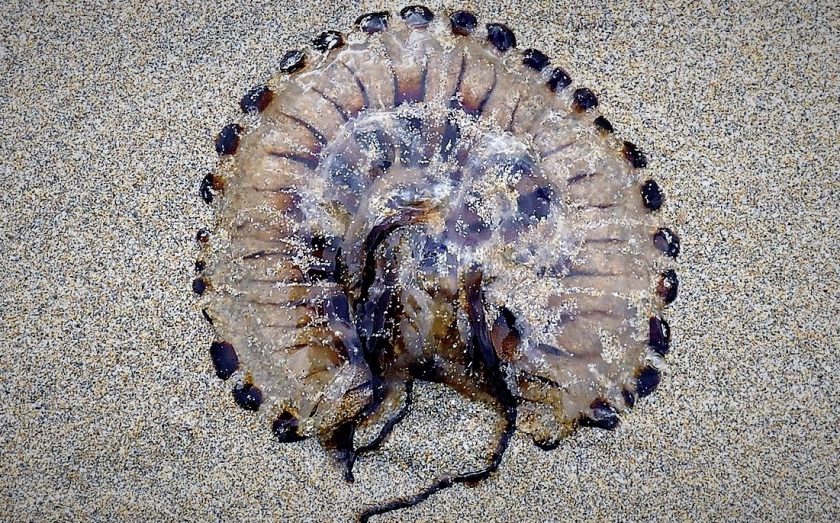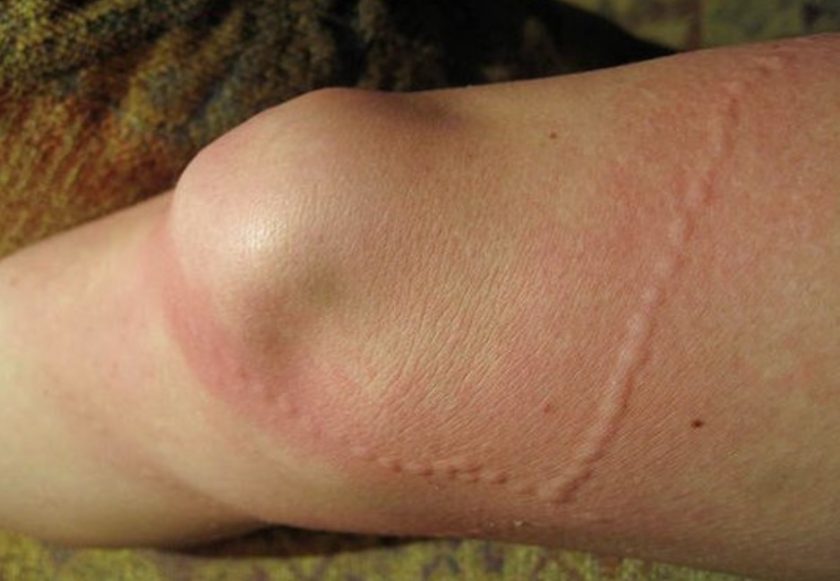North Wales hospital seeing increase in patients with jellyfish stings – here’s some advice from one of its doctors

A doctor at one North Wales Hospital Emergency Department has issued advice on how best to treat jelly fish stings following an increase in patients attending with stings during the recent warm weather.
Jellyfish are commonly seen washed up on the beaches of North Wales during the summer months, fortunately most are relatively harmless and majority of stings can be managed by basic first aid.
The stings are caused by specialised cells called nematocysts, which are triggered by contact, and inject venom into the victim.
Dr Jennifer Hulse, Clinical Fellow in Emergency Medicine at Ysbyty Gwynedd, said:
“There are three simple first-aid steps to treating jellyfish stings.
First, remove any jellyfish parts stuck to the skin, as they may continue to release stinging chemicals: brush them away with the edge of a credit card or similar plastic object.
Avoid touching with your hands, and don’t rub with towels or clothes. Next, rinse thoroughly in salt water. Seawater is perfect for this, just look out for other jellyfish!
Finally, soak the affected area in hot water or take a hot shower, for at least 30 minutes. The water should be as hot as you are able to tolerate, but be careful to test the temperature for children.
We no longer recommend using vinegar, and you definitely shouldn’t pee on jellyfish stings, we guarantee this will not help!”

After a jellyfish sting, it is entirely normal to experience burning, throbbing or itching, and the pain may spread out from the affected area.
There may be redness and mild swelling around the site of the sting, and a rash may appear immediately, or after a few hours.
These symptoms can be treated at home with simple painkillers such as paracetamol and ibuprofen, and antihistamines may help if there is itching or a rash – all of these medicines can be purchased over the counter.
None of the jellyfish species commonly found in UK waters are severely toxic, and most stings are no more serious than a nettle sting. So it’s very rare that we need to see them in the Emergency Department.
The exceptions are extensive stings to the face or genital area, or very rarely, if an allergic reaction develops: you should seek help immediately if you have trouble breathing, swelling of the face, chest pain, vomiting, severe dizziness or other unusual symptoms following a sting”.
For further information on jelly fish and other sea creature stings visit https://www.nhs.uk/conditions/jellyfish-and-other-sea-creature-stings/
Spotted something? Got a story? Email: [email protected]
Latest News
